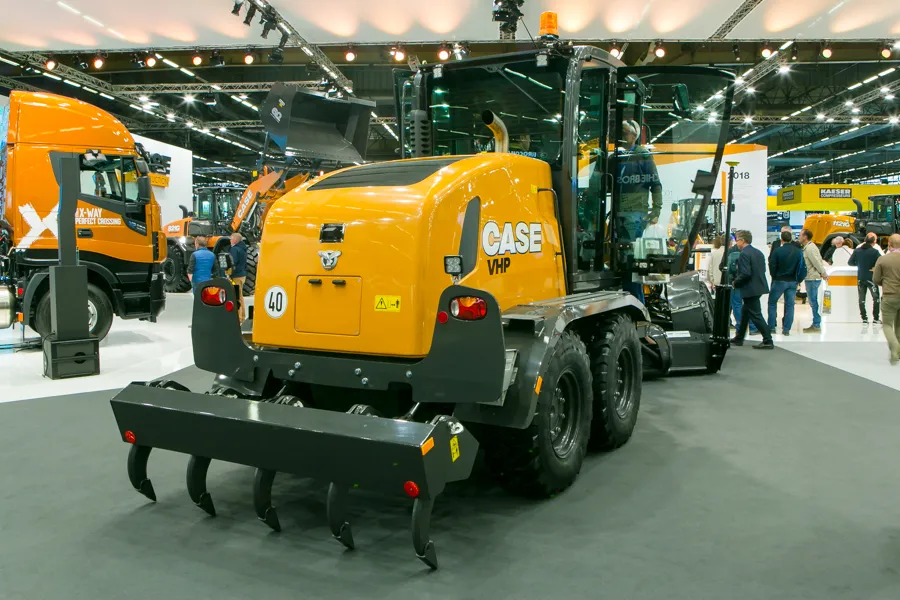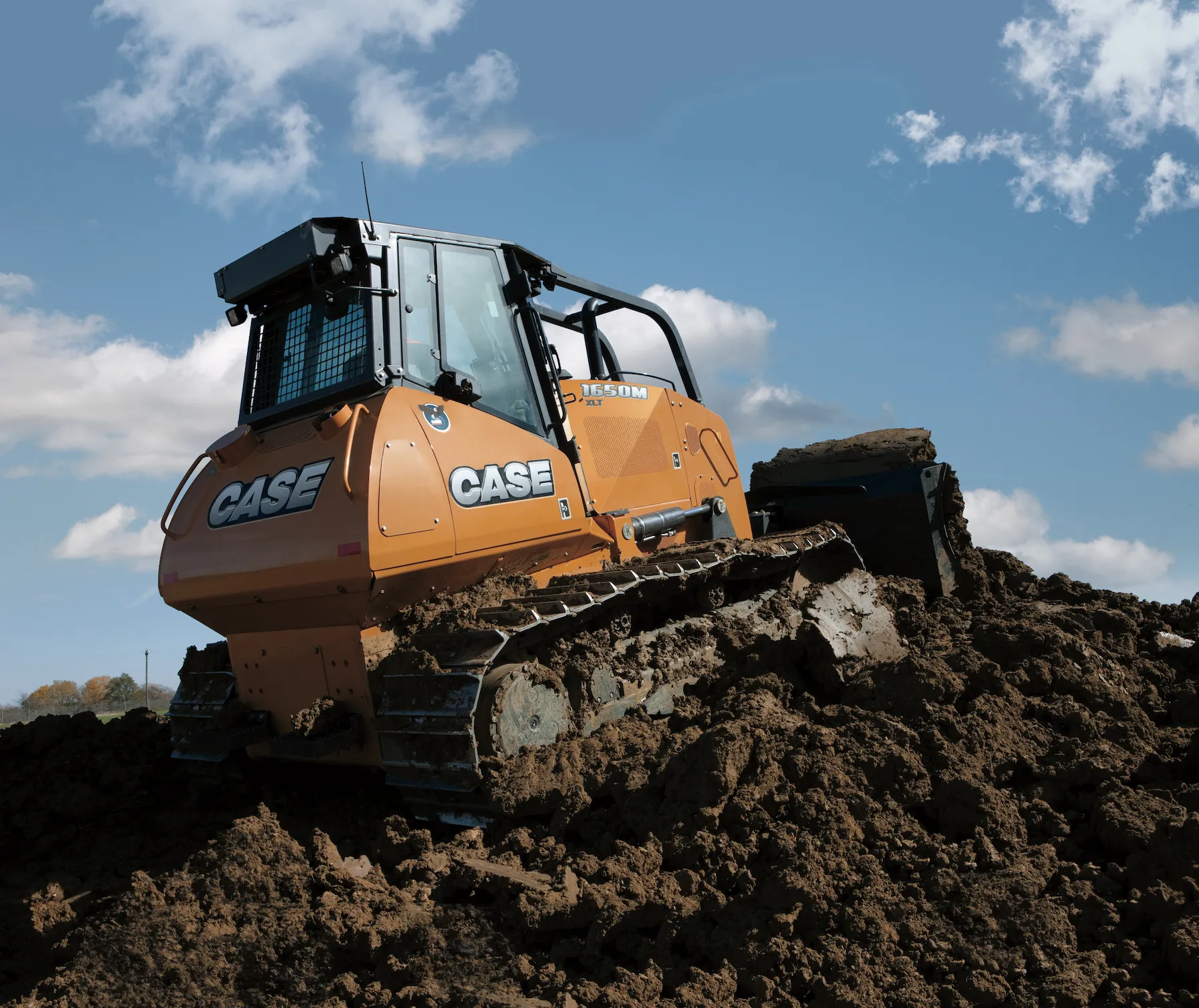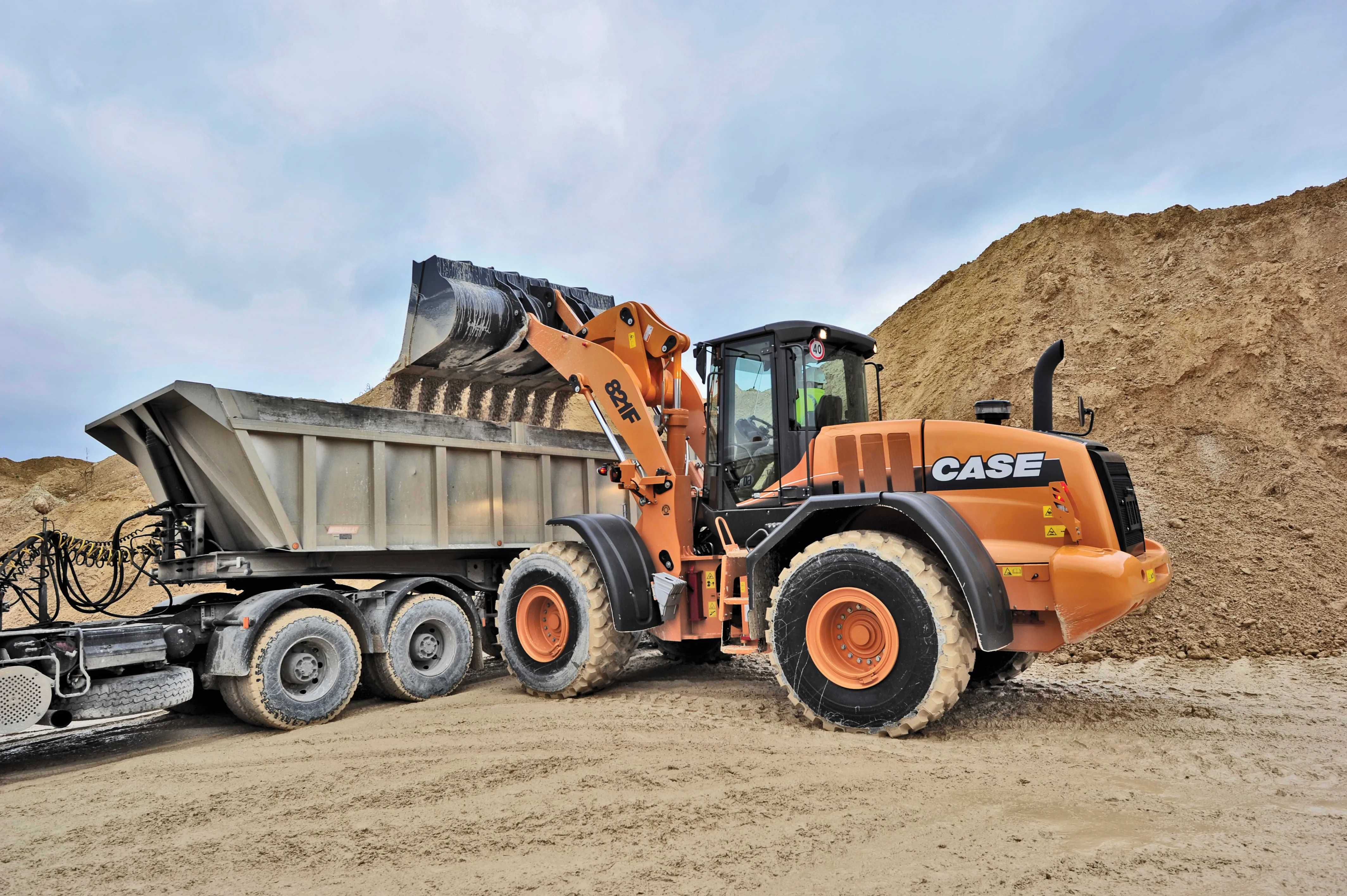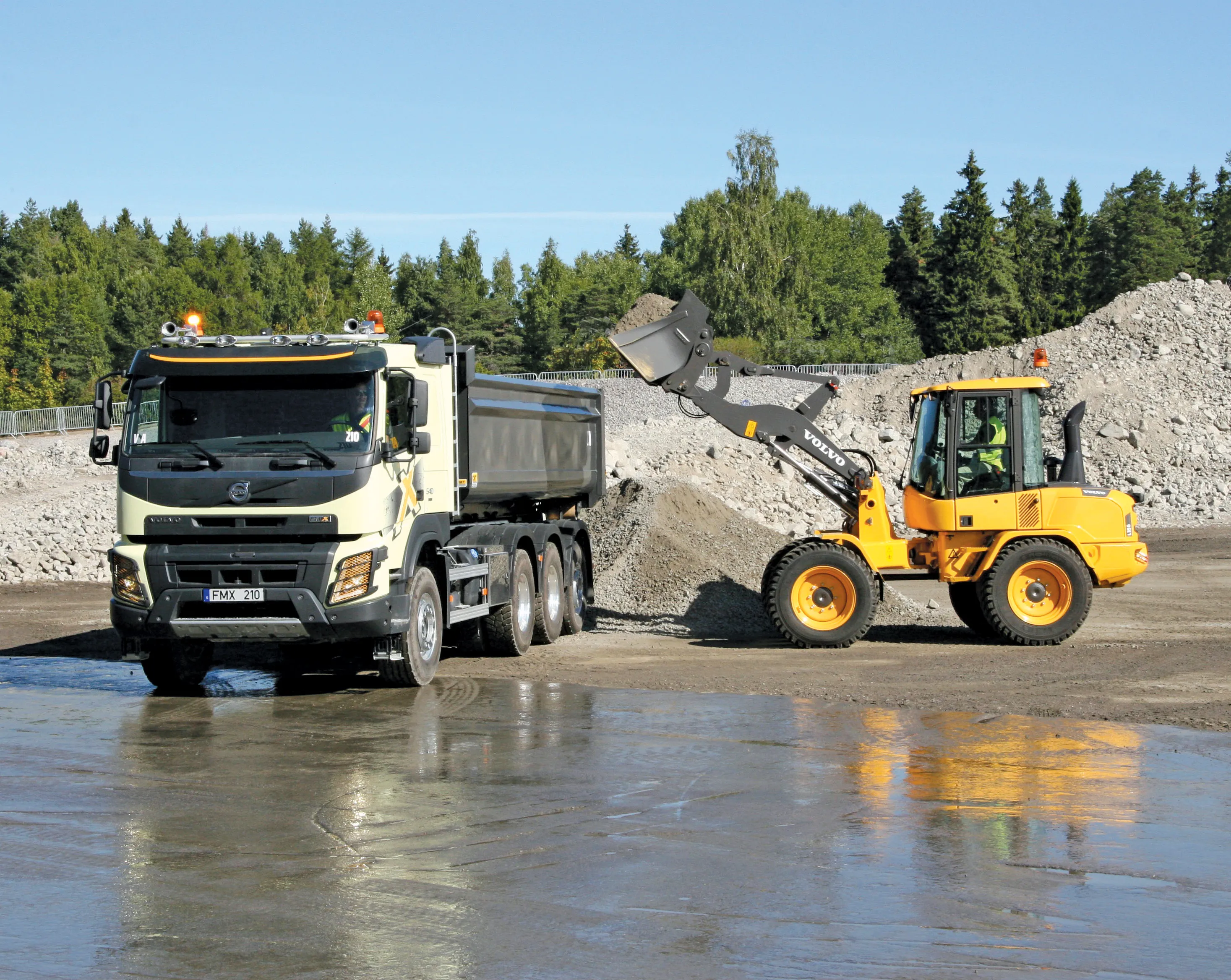
To optimise earthmoving work and ensure efficiency, the firm offers the 2D and 3D SiteControl blade control systems. These packages have been made available through the firm’s partnership with Leica Geosystems and allow an operator to automate blade height, ensuring working accuracy to mm level. CASE SiteControl delivers reliable, repeatable precision, so that the operator gets the job done right first time round, the firm says. This results in time and fuel savings, reduced need for reworking and equipment wear and tear, while increasing productivity – and improving customer competitiveness.
The firm says that the machines offer good weight distribution, with all-wheel-drive and effective speed management to optimise traction. An Ergopower transmission with torque converter is said to deliver smooth shifting and further optimise controllability. The novel multi-radius moldboard with its encapsulated slewing ring is said to help optimise productivity with performance optimised by its control system.








